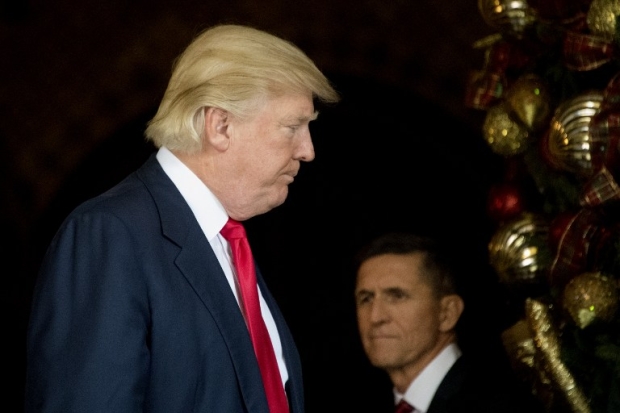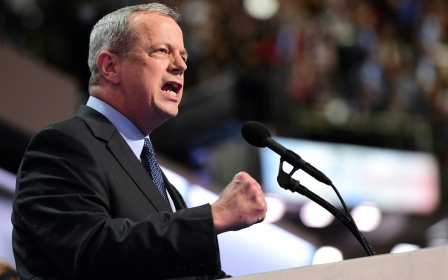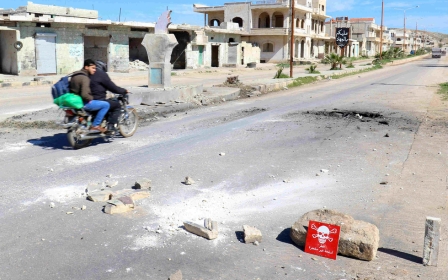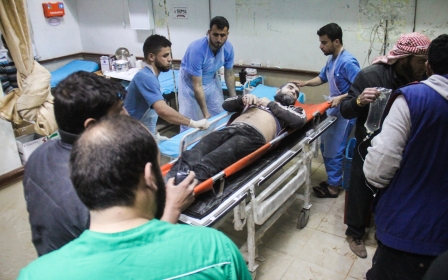Donald Trump: Assad has crossed red line with Syria poison gas attack
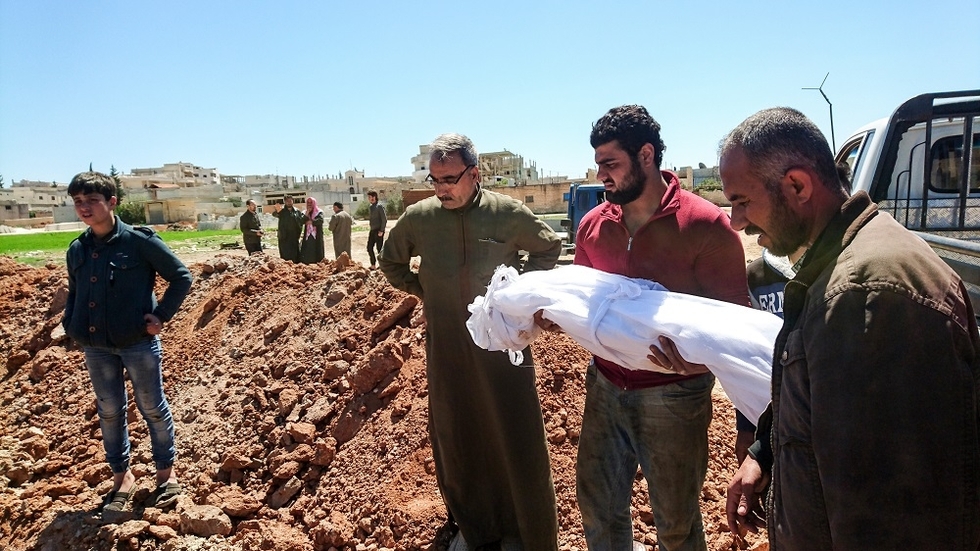
Syria's president has crossed "beyond a red line" with a poison gas attack in Idlib blamed by Washington on Damascus, and all options are on the table, US leaders said in a dramatic hardening of rhetoric overnight on Wednesday.
US President Donald Trump accused his Syrian counterpart Bashar al-Assad of crossing "many, many lines... beyond a red line" with Tuesday's attack in Khan Sheikhun and said his attitude towards Syria and Assad had changed, but gave no indication of how he would respond.
I will tell you, what happened yesterday is unacceptable to me
- Donald Trump
"I will tell you, what happened yesterday is unacceptable to me," Trump said at a news conference with Jordan's King Abdullah on Wednesday.
"And I will tell you, it’s already happened that my attitude toward Syria and Assad has changed very much," though when asked at an earlier meeting whether he was formulating a new policy on Syria, Trump said: "You'll see."
Trump's comments echo those of his predecessor, Barack Obama, who in 2012 said the use of chemical weapons in Syria was a "red line", but then decided not to bomb Assad after a sarin gas attack killed hundreds in Ghouta, Damascus, in 2013.
Mike Pence, Trump's vice president, meanwhile, has said "all options are on the table" for a US response to the attack.
He told Fox News that Russia, Assad's principal backer, must fulfill its obligation under a 2013 agreement to eliminate chemical weapons from Syria.
Rex Tillerson, the US secretary of state, said it was time for Russia to think carefully about its support for Assad.
"We think that it is time that the Russians really need to think carefully about their continued support of the Assad regime," he said,
And in New York, Nikki Haley, the US ambassador to the UN, warned that Washington could take unilateral action if the Security Council did not respond firmly to the suspected chemical attack.
“When the United Nations consistently fails in its duty to act collectively, there are times in the life of states that we are compelled to take our own action,” Haley said, without elaborating.
Last month, US-led coalition aircraft dropped fighters for the first time into an area near the Syrian city of Raqqa to retake IS territory in a mission that included Apache helicopters, US Marine Corps artillery and special operations troops.
The campaign to capture Raqqa appears to be gathering pace as an overlapping, US-backed effort in Iraq is drawing closer to driving Islamic State militants from Mosul.
Britain, France and the United States, which holds the council presidency in April, have presented a draft resolution demanding a full investigation of the attack. Russia said the text was “categorically unacceptable”.
New MEE newsletter: Jerusalem Dispatch
Sign up to get the latest insights and analysis on Israel-Palestine, alongside Turkey Unpacked and other MEE newsletters
Middle East Eye delivers independent and unrivalled coverage and analysis of the Middle East, North Africa and beyond. To learn more about republishing this content and the associated fees, please fill out this form. More about MEE can be found here.


